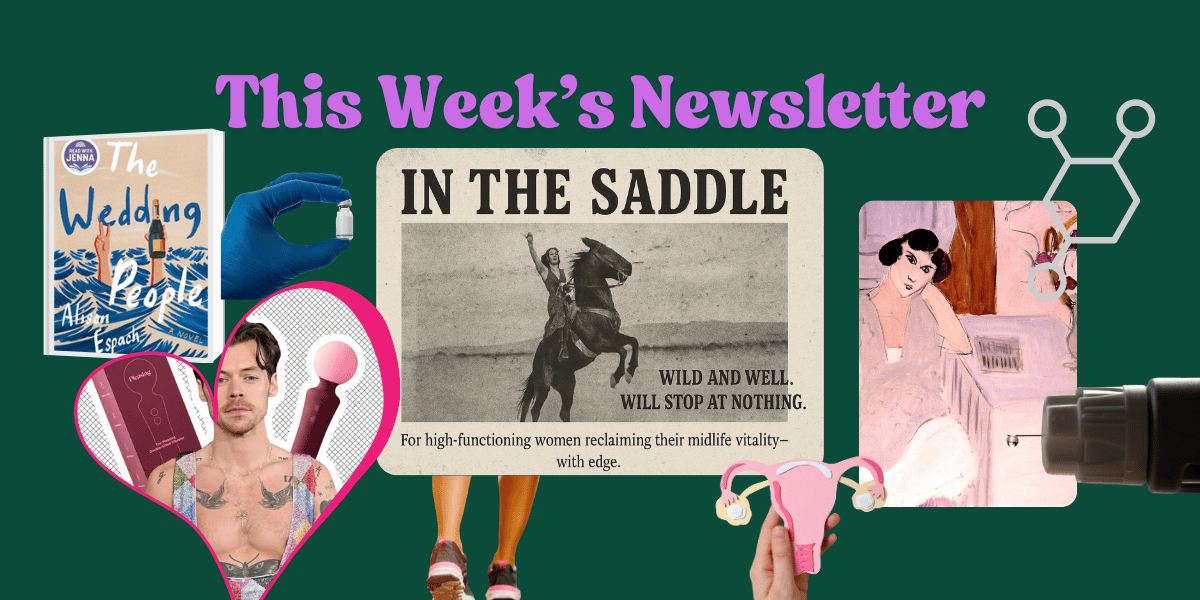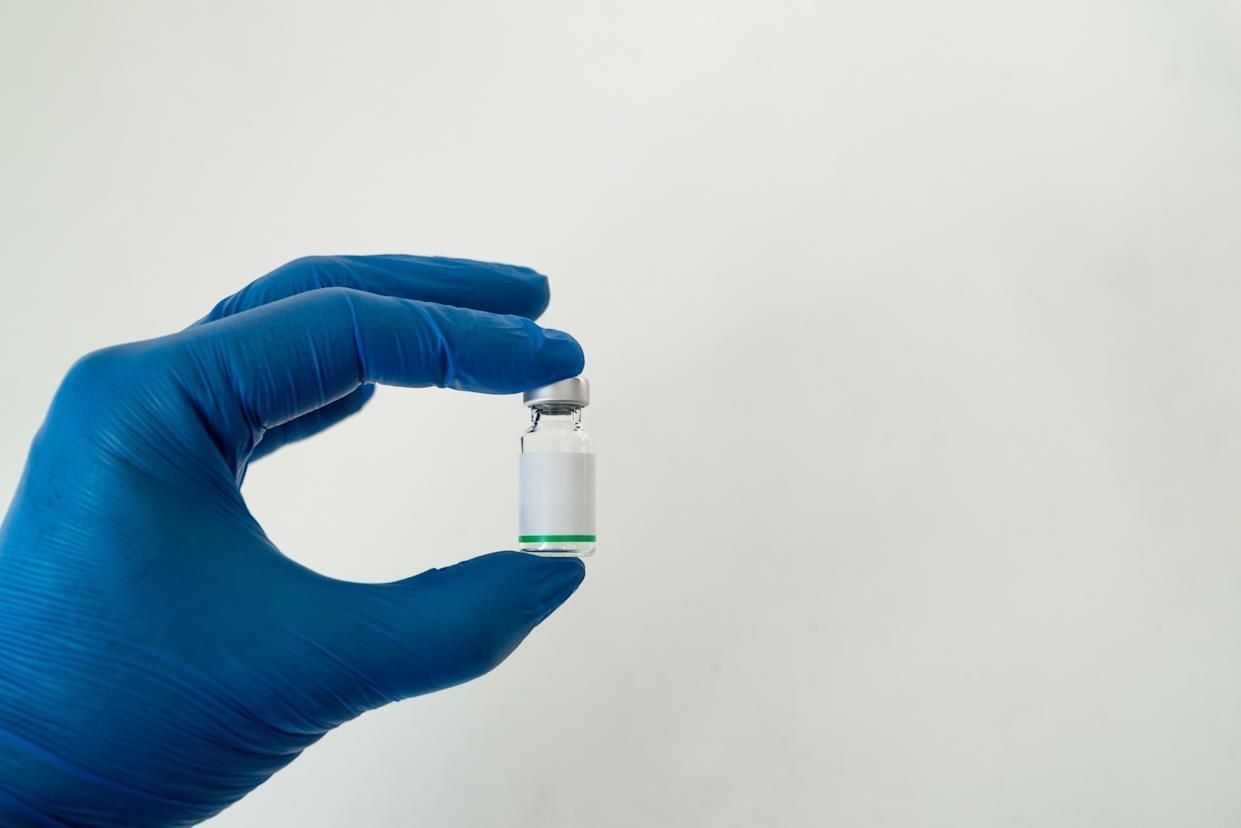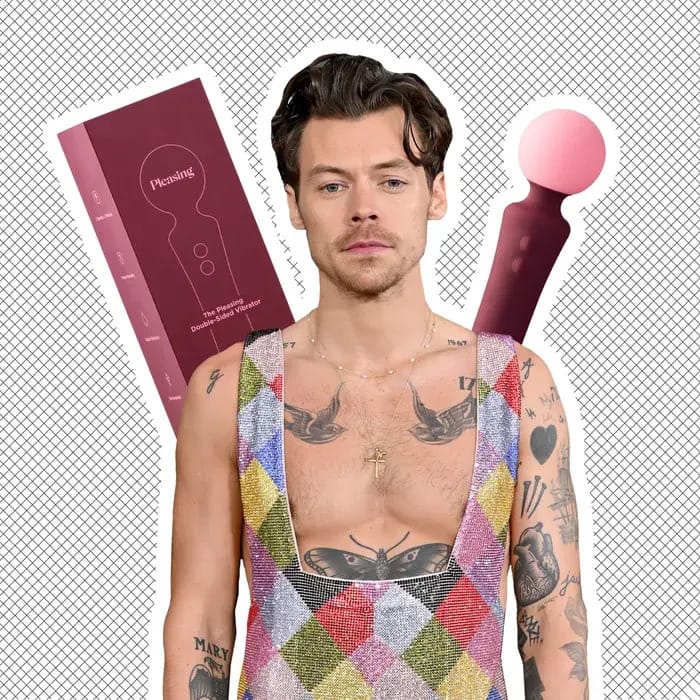
Jackie's Take: What's on My Mind in Women's Wellness ✍ 🤔 📰
⏱🧬 These May Be The Hidden Hormones Guiding Your Menopause Timeline
It’s not just your hormones that are changing—it’s how they’re whispering to you before they shout.
When we talk about menopause timing and female longevity, the spotlight usually lands on estrogen. But like most things in women’s health, the real story is more layered and less linear. Several other hormones (ones your provider may not even mention) can offer early clues about how fast your hormonal clock is ticking and whether your ovaries are waving a subtle white flag.
In clinical practice, I’ve started paying closer attention to four “undercover” biomarkers that often show up long before your period disappears: recurrent UTIs and vaginal infections, poor sleep, chronic stress, and a dwindling sex life. These may not seem connected at first glance—but together, they form a map of ovarian aging, neuroendocrine resilience, and sexual vitality.
Let’s break it down👇.

🚽 Recurrent UTIs: A Whisper from Your Androgens?
Getting frequent UTIs in your 30s isn’t just annoying—it might be your body waving a hormonal white flag. We know postmenopausal estrogen loss thins the vaginal tissue and disrupts protective bacteria. But even subtle dips in estrogen and testosterone can impact urogenital health years before menopause is official.
And here’s the deeper cut: the vaginal microbiome isn’t just along for the ride—it’s an endocrine-sensitive ecosystem in its own right. Androgen receptors are expressed throughout the vulvovaginal and lower urinary tract tissues, and androgens like testosterone and DHEA help maintain the structural integrity, lubrication, and immune defense of this entire region. When these hormones decline, the tissue becomes thinner, less elastic, and more prone to inflammation and infection.
Hormonal shifts also directly shape the vaginal microbiota. Loss of Lactobacillus crispatus—a protective species—can raise infection risk, and a disrupted vaginal microbiome is one of the strongest predictors of recurrent UTIs. One large cohort study found that postmenopausal women using vaginal prasterone (a DHEA-based hormone that converts to estrogen and testosterone) had about half the UTI rate of untreated women—6.6% vs. 12.3% during the study period.
So if your doc is brushing off those recurring infections as “just bad luck,” it might be worth asking: is my hormone health already shifting? And is my vaginal microbiome trying to tell me something? 🦠
🌙 Melatonin and the Sleep-Ovary Axis
We think of melatonin as a sleep aid, but it turns out this “darkness hormone” does double duty. It protects ovarian follicles from oxidative stress and—in animal models—can even delay ovarian aging. In humans, melatonin levels begin to drop around age 40 and continue to decline through perimenopause and beyond.
Translation? If your sleep has gone off a cliff in your late 30s or early 40s, it might not just be screen time or stress. Melatonin levels naturally decline with age and (a very cautious, may) play a role in triggering the menopausal transition. Whether supplementing with melatonin can actually slow ovarian aging remains unclear. What we do know is that melatonin can help some women fall asleep more easily, though it’s less effective for keeping you asleep through the night and can sometimes cause vivid dreams. Still, for many midlife women, it’s a relatively low-risk option worth exploring as part of a broader sleep strategy. 💤
😰 Cortisol: The Uninvited Hormone Aging You Faster
You might feel like you're handling stress well—but your HPA axis may be telling a different story. Elevated cortisol over time has been shown to accelerate reproductive aging. One large study found that women with high perceived stress experienced menopause about five months earlier than those with low stress. Women with PTSD? Nearly twice the risk of early menopause.
Your stress doesn’t have to be dramatic to be damaging. It just has to be persistent. And for high-functioning women, especially those accustomed to muscling through, that slow simmer can be easy to overlook. But stress regulation isn’t just for mental health—it’s an ovarian longevity strategy. 💫
🫦 Sex, Oxytocin, and the “Use It or Lose It” Theory
Let’s talk about pleasure. Weekly sexual activity (partnered or solo) was linked to a 28% lower chance of entering menopause at any given age. However, there is a bit of a “chicken or the egg” phenomenon going on here when we dive into the studies. Some researchers believe the signal here is behavioral: if the body perceives low odds of pregnancy (via low sexual activity), it may “decide” ovulation is no longer worth the energetic cost, potentially impacting the timing of menopause. Or perhaps instead, it’s the loss of testosterone leading to less sex drive and the impact of low androgens on ovarian function that is underpinning time to menopause. Is biology or behavior the real driving force? The answer is probably both — but we need more research to find out.
Either way you choose to view it, this is not about performative sex. What we know is that oxytocin —the feel-good hormone released during intimacy, touch, and connection, not only buffers stress and improves sleep, but also may help preserve the metabolic and hormonal environment necessary for ovulatory cycling. In other words: your orgasms might be more than a quality-of-life metric. They could be a longevity biomarker, and something I’ve been referring to lately as “sexspan”. 🫶
So…Can These Hormones Delay Menopause?
And that brings us to the million-dollar question: Can we actually change the timeline? If these hormones decline in tandem with ovarian aging, does replacing them—via DHEA, melatonin, or testosterone—meaningfully slow the process? Or are they simply early-warning signals—smoke rising before the hormonal fire—nudging us to act sooner with lifestyle, sleep, stress, and pleasure as levers to support endogenous function?
The truth is, we don’t fully know. The science is still emerging. But the trend lines are worth watching. What we do know is that these changes often show up long before the hot flashes, the cycle chaos, or the “abnormal” labs. Which means the smartest thing we can do may not be to “fix” these symptoms—but to listen to what they’re trying to say. 🗣
🧠 What to Track and What to Consider
UTIs or vaginal infections → consider hormone evaluation or microbiome test
Sleep patterns → consider supplement support or a sleep study for apnea
Daily stress load → consider mindfulness, adaptogens, nervous system regulation
Libido, pleasure, intimacy → consider testosterone, DHEA supplements or oxytocin-supportive practices like massage and cuddling 💝
And while these clues are valuable, let’s keep them in perspective: having a few UTIs in your 30s doesn’t mean you’re barreling toward early menopause. These are patterns, not prophecies. Correlation doesn’t equal causation—but when patterns stack, they can still offer powerful insight.
What excites me most is what’s ahead. We’re entering an era where AI will be able to take these scattered signals—across time, across bodies—and make sense of them with a level of nuance and scale that human clinicians can’t replicate alone. This will allow us to move from reactive to proactive. From vague reassurance to truly evidence-based guidance on hormonal aging. I’m ready for that future, how about you? 🐴
The Tea: What's Trending in Women's Wellness & Culture 🍵 🛍
This sharp, funny essay captures the cultural moment of peak perimenopause—when every mood, ache, or missed checklist item gets blamed on “the change.” I love how she weaves in her personal story—messy, moody, and totally relatable—because it reminds us that while midlife may share patterns, the experience is deeply individual. Her line, “I can’t just be a 44-year-old woman; instead, I am perimenopausal,” says it all—just as we hit our stride, we’re told to brace for decline 📉 (Elle)

Emma Rosenblum for Elle
💪 Peptide Injections: The under-the-radar injections people are taking to build muscle this summer — including the 'Wolverine' shot
This article investigates the rise of under-the-radar peptides like BPC-157, TB-500, and others now being used for everything from joint pain to muscle recovery—often prescribed via concierge platforms with little oversight. While the tone leans bro-science, the demand is real, and the regulatory gray zone is growing.
I’m increasingly asked about peptides like BPC-157 by midlife women managing chronic musculoskeletal pain where hormone therapy alone isn’t cutting it—so I’m paying close attention. 💉(Business Insider/AOL)
📖 Research Corner: Daily steps and health outcomes in adults 🚶♀🚶♀🚶♀
A new Lancet Public Health meta-analysis found that walking just 7,000 steps per day (not 10,000!) is linked to significantly lower risks of death, dementia, diabetes, heart disease, and depression. The sweet spot for benefit kicks in around 5,000–7,000 steps—and the gains are real: a 47% lower risk of all-cause mortality and a 38% lower risk of dementia. 🧠🫀
What Your Apple Watch Knows That Your Doctor Doesn't
You're generating valuable health data from your wearable...but nobody's teaching you how to turn that information into actionable insights for your midlife body.
Here’s the problem…Your data could be the key to unlocking your energy, motivation, and vitality…but instead, you're left guessing and hoping something will eventually make sense.
After 15 years of watching brilliant women accept "it's just your age" as an answer, I've had enough. That's why I've spent the last two years developing something that's never existed before: a comprehensive system that teaches you to interpret YOUR unique health story using AI-powered analysis.
This isn't about adding more data to your life. It's about finally making sense of the data you already have.
In 6 weeks, you'll learn to:
Decode what your wearable tracker may be saying about your hormone patterns
Identify hidden connections between your symptoms and your lab values
Build personalized protocols based on YOUR body's specific needs
Create a wellness management system that evolves with you
The catch? This beta program is intentionally small. Just 50 women who are ready to stop being passengers in their own health journey and start being the CEO of their wellbeing.
Newsletter subscribers get first dibs before this goes anywhere else. Because honestly? YOU are exactly who this program was designed for.
The Group Chat Edit 📲 👯♂
📘 To Read: The Wedding People 👰
Recommended to me now by two friends, I just bought The Wedding People by Alison Espach for my August vacation. Word on the street is it is the perfect beach read for women craving sharp dialogue, complicated relationships, and second-chance energy. Reply to this email and let me know if you read it, and what you thought! 📧
😄 To Try: The Smart Cook’s Guide to Freezing Food (Without Ruining It)
This freezer guide from Nik Sharma is smart, practical, and actually teaches you how to freeze ingredients for flavor, not just safe storage. Perfect for busy women looking to eat well without starting from scratch every night. 🥶
🛍To Buy: Please Yourself, with Harry Styles 🏩🎼
Yes, THAT Harry Styles. Although currently sold out online, his new Pleasing Yourself vibrator is $70, chic, double-sided, and co-designed with a sex educator—bonus points for the matching FDA-cleared lube and independently controlled ends. ❤🔥
Saddle Up & Spread the Word 🏇💨

If you’re still reading, thank you. In the early days of a business, every subscribe, like, and share makes a real difference. Your early support means so much as I keep building In the Saddle - both the newsletter and this community ⭕
To share — Just click and copy this link: https://inthesaddle.beehiiv.com/
If you’re a brand, expert, or just someone with an excellent story to tell in the wellness, longevity, or sexual health space, I’d love to connect! I am always open to hearing ideas for ITS content and collabs. ✏️ 🏇🔥
With gratitude always,
Jackie Giannelli, FNP-BC, MSCP
Founder, In the Saddle
What did you think of today's newsletter?
Medical Disclaimer:
The content provided in this newsletter is for informational and educational purposes only and is not intended as a substitute for professional medical advice, diagnosis, or treatment. Nothing contained herein should be construed as medical guidance or the practice of medicine. You should always seek the advice of your physician or other qualified healthcare provider with any questions you may have regarding a medical condition or treatment. Never disregard professional medical advice or delay seeking care because of something you read in this newsletter. Use of the information provided is at your own risk. No clinician-patient relationship is formed through this content.





